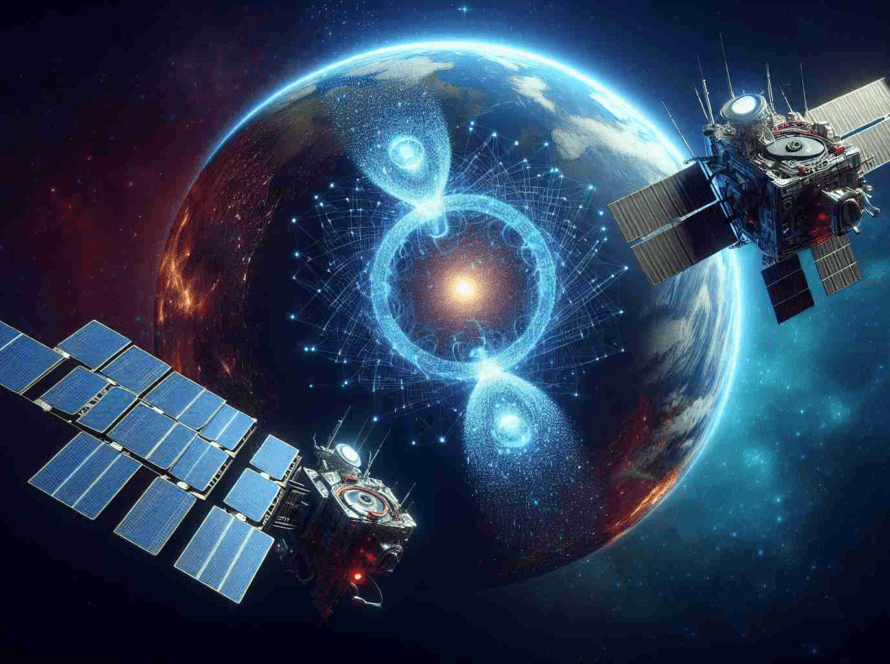Because the aviation business strides into the long run, an exciting revolution is underway—synthetic intelligence (AI) is about to redefine the function of the plane pilot. The combination of AI as a co-pilot guarantees to boost security and effectivity in methods by no means earlier than imagined. This leap ahead not solely reduces human workload but in addition addresses potential human errors throughout flights.
In recent times, AI applied sciences have been making vital inroads. Flight administration programs powered by AI are usually not nearly autopilot features anymore. These programs are evolving to help human pilots in decision-making processes, predicting climate patterns, optimizing gasoline consumption, and managing real-time information for 1000’s of in-flight parameters.
One groundbreaking improvement is AI’s potential to study from previous flights and simulate numerous situations, making ready the human pilot for a variety of potential challenges. This clever layer of assist acts as a dependable secondary pilot, guaranteeing faster computation and response occasions, significantly in disaster conditions.
Whereas some could worry the substitute of human pilots, the fact seems extra symbiotic. AI’s function may step by step shift human pilots in the direction of extra strategic and supervisory roles. This technological development heralds a future the place security requirements soar, routes grow to be extra optimized, and air journey will get much more dependable and environment friendly.
The sky is now not the restrict—the fusion of AI and aviation may simply propel us to new horizons, guaranteeing our pilots fly safer and smarter than ever earlier than.
The Way forward for Flight: AI Co-Pilots Remodeling Aviation
The combination of synthetic intelligence (AI) into aviation as a co-pilot heralds an evolution that may considerably have an effect on the surroundings, humanity, and the financial system. By enhancing flight security and effectivity, AI expertise holds promise for making a extra sustainable and linked future.
Environmental Impression
AI’s potential to optimize gasoline consumption immediately addresses environmental considerations by doubtlessly lowering the carbon footprint of air journey. As aviation stays a major contributor to international greenhouse fuel emissions, implementing AI programs that refine gasoline use can decrease emissions, contribute to the battle towards local weather change, and promote a cleaner, extra sustainable future. AI can even enhance flight paths, avoiding hazardous climate and lowering delays, which additional minimizes pointless gasoline consumption.
Human Impression
The transition from human-centric flying to an AI-supported mannequin locations pilots in a extra strategic and supervisory function. By lowering pilot workload and lessening the impression of human error, AI fosters a safer journey surroundings. Human pilots, appearing as strategic overseers, can deal with complicated decision-making whereas counting on AI for data-driven insights and real-time analytics. This collaboration permits for extra profound human-machine interplay, doubtlessly resulting in new coaching paradigms and talent improvement for pilots.
Financial Affect
The financial advantages of AI in aviation embody decreased operational prices and enhanced effectivity. Optimized gasoline consumption and improved route planning may end up in vital monetary financial savings for airways. Furthermore, a decline in human error-related accidents can lower insurance coverage and regulatory prices. These financial savings have the potential to be reinvested into business innovation and shopper worth reductions, stimulating financial development throughout the aviation sector and past.
Future Connections
Seeking to the way forward for humanity, AI’s integration into aviation may affect the broader transportation and expertise industries. As AI programs grow to be extra refined, industries could undertake comparable fashions for integrating expertise as supportive relatively than substitute features. This might reshape the workforce, necessitating retraining applications and academic reforms to arrange future employees for symbiotic partnerships with AI throughout varied fields.
AI co-pilots deliver us nearer to an age the place air journey is safer, extra environment friendly, and environmentally acutely aware. As expertise and humanity evolve collectively, this aviation revolution may function a blueprint for integrating AI into different vital industries, paving the way in which towards sustainable innovation and financial development within the fashionable world.
How AI is Remodeling Aviation: Alternatives and Challenges
As synthetic intelligence (AI) continues to make vital strides in varied industries, the aviation sector is eagerly embracing this technological marvel to revolutionize air journey. The combination of AI as a co-pilot guarantees to uplift security and effectivity requirements, providing groundbreaking developments whereas additionally posing some distinctive challenges.
Improvements and Options of AI in Aviation
AI will not be solely enhancing conventional autopilot programs however can be remodeling them into superior flight administration programs with capabilities past navigation. These AI-powered programs help pilots by:
– Predicting Climate Patterns: Using refined algorithms to forecast and navigate round turbulent climate, guaranteeing smoother flights.
– Optimizing Gasoline Consumption: Analyzing huge quantities of knowledge to suggest fuel-efficient routes, lowering prices and environmental impression.
– Managing Actual-Time Information: Processing 1000’s of in-flight parameters to supply insightful suggestions and improve decision-making.
Furthermore, AI’s potential to study from previous flights and simulate numerous situations equips pilots with proactive methods for managing emergencies, amplifying the protection internet throughout vital conditions.
Execs and Cons of AI Co-pilot Methods
Execs:
– Enhanced Security: AI offers fast computational assist, lowering response occasions throughout crises.
– Decreased Pilot Workload: By dealing with routine duties, AI permits pilots to deal with strategic decision-making.
– Gasoline Effectivity: AI’s potential to optimize routes can considerably minimize down gasoline consumption.
Cons:
– Dependency Dangers: Elevated reliance on AI may result in talent degradation in pilots.
– Advanced System Administration: Implementing and sustaining such superior programs requires steady improvement and monitoring.
– Privateness Issues: The huge information collected and analyzed by AI programs may pose privateness challenges.
Market Evaluation and Predictions
The marketplace for AI in aviation is anticipated to develop considerably as airways and aviation corporations put money into smarter applied sciences. This development is pushed by the necessity for environment friendly operations, price discount, and enhanced passenger expertise. As expertise advances, the function of AI in aviation may evolve in the direction of totally autonomous flights, although human oversight will stay vital for the foreseeable future.
Safety and Sustainability Points
Integrating AI in aviation entails overcoming safety challenges to make sure programs are protected towards cyber threats. Furthermore, the push for sustainability accelerates the adoption of AI, because it aids in lowering carbon footprints by way of environment friendly flight routing and gasoline optimization.
Conclusion
The fusion of AI and aviation affords a future the place air journey is safer, extra dependable, and environmentally sustainable. As AI applied sciences proceed to evolve, they maintain the promise of reworking aviation on a number of fronts, although balancing innovation with human oversight and safety concerns will stay essential.
Additional Studying
Discover extra in regards to the ongoing improvements in AI and its impression on varied industries by visiting IBM and Airbus.
Watch this video on YouTube.
Artykuł Revolutionizing Skies! The Rise of AI Co-Pilots. pochodzi z serwisu Agogs.


